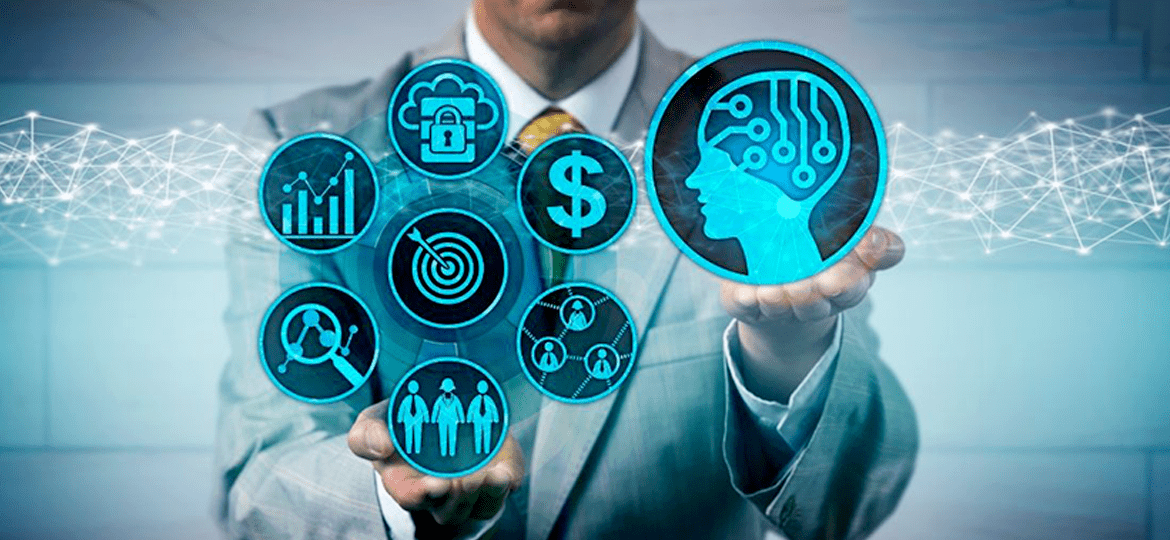
How Cognitive Automation is Transforming the Future of Work
Cognitive Automation, Robotics, and Artificial Intelligence are creating a quaky shift in the way societies and businesses function and reevaluating the way human works. It’s essential to know the difference between Cognitive Automation and RPA and how they play an indispensable role in business processes.
According to the Deloitte survey, Cognitive Automation is paving the best path for different industries, including insurance, banking, technology, and more. Cognition is an outstanding competence indicating the human species, which has enabled them to achieve and succeed in extraordinary challenges. A Cognitive system has been developed because of the explosion of the unstructured data in AI. Regardless, this system expands the boundaries of human cognition instead of replacing or replicating them.
What is Cognitive Automation?
Cognitive Automation is an intelligent and artificial software system which understand languages, reason with purpose, learn rules, and naturally interact with humans. They learn from experiences and interact with the environment instead of requiring explicit programming.
Cognitive Automation is a subdivision of Artificial Intelligence which integrates the capabilities of machine and human. It makes use of the different techniques to imitate the human thought process, namely natural language processing, data mining, machine learning, text analytics, and pattern matching. According to Mckinsey, Cognitive Automation is going to be the future for Employment, Automation, and productivity.
Important Advantages of Cognitive Automation:
Efficiencies are improved by combining human skills of complex problem solving and deep thinking; and machine skills like analyzing, processing, and reading the vast amounts of data. Cognitive Automation offer capabilities of reasoning, interacting, learning, and understanding. The system understands images, languages, virtually operationalize un-structured, and structured data.
Difference between RPA and Cognitive Automation:
It is crucial to understand the differences between Cognitive Automation and RPA to make an informed decision for endowing in Artificial Intelligence technologies.
- Technology: Cognitive Automation makes use of advanced techniques like text analytics, data mining and natural language processing. Conversely, RPA utilizes underlying technologies like macro scripts, workflow automation, and screen scraping. It depends on the deployment and framework configuration.
- Method of Automation: Cognitive Automation defines its rules by understanding human behaviors and conversations, and it’s a knowledge-based technology. RPA uses rule-based principles and process-oriented technology to work on time-consuming tasks.
- Data Processing: Cognitive Automation processes unstructured data by finding and learning similarities, whereas RPA can handle semi-structured and structured data formats.
- Application: Cognitive Automation spoofs human behavior from a complicated task which requires rational decision making and involves voluminous data. Conversely, RPA utilizes software robots to spoof repetitive task with precision and accuracy. It is suitable for processes, which does not need decision-making or human intervention.
Integration of RPA and Cognitive Automation:
The combination of cognitive Automation and RPA offers an end to end automation solution by processing both unstructured and structured data effectively. For instance, it is easy to learn and extract the audio, images, speed, and text with natural language processing and speech recognition, and pass the data to enable RPA to take the next step.
Enterprises face a number of challenges like increased revenues, timely and good decision making, higher customer loyalty and being ahead of the competition.
Cognitive Automation will offer different strategies in business and thereby reducing the risks and getting the company closer to their Goals.
The Cognitive Automation is also capable of learning from the process as it moves forward, and suggest ways to automate itself.
Process Mining and Cognitive Automation:
One of the challenges in Cognitive Automation is the cost of recognizing which tasks or processes to automate, which a centralized team can do within the company.
Once tasks are identified, the CA will
- Record what the users are doing it.
- Mine and then understand them.
- Map all the process steps.
- Suggest automating them.
There is a different automation application for structuring process that includes modeling, execution, control, strategy, implementation, continuous process improvement, and monitoring.
The future is taking shape by the adoption of cognitive automation and artificial intelligence in the workplaces.
About IntellectFaces:
IntellectFaces is one of the Cognitive Automation Service Provider in the USA. We trust that unlocking the CA potentials can help in making crucial decisions and can solve critical challenges faced by the industry.

